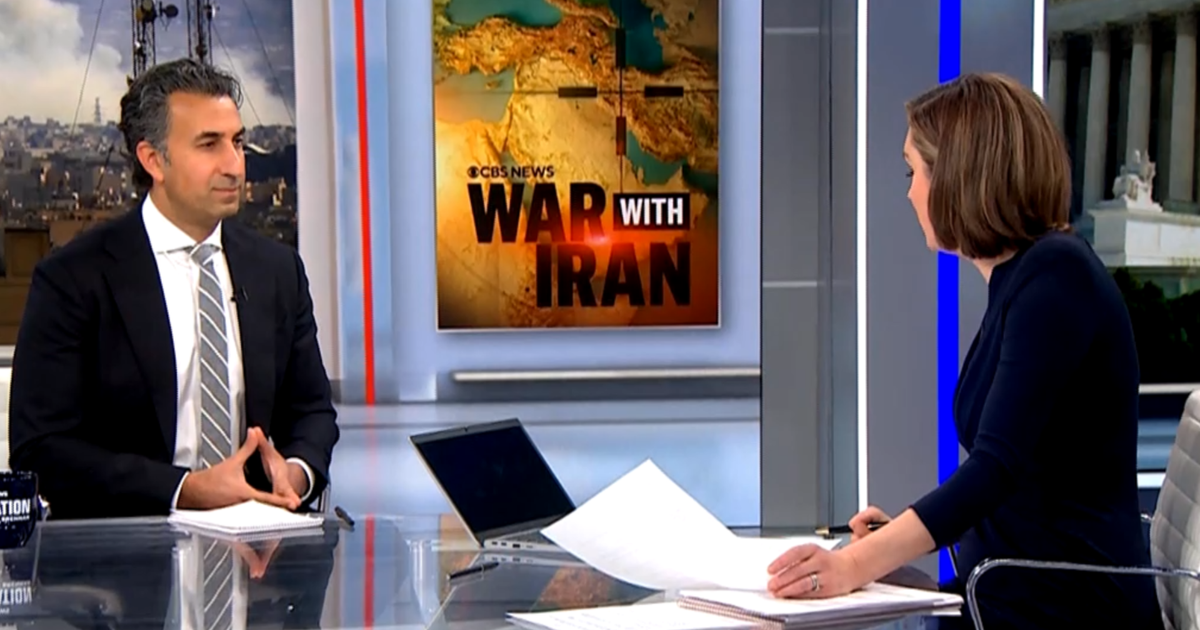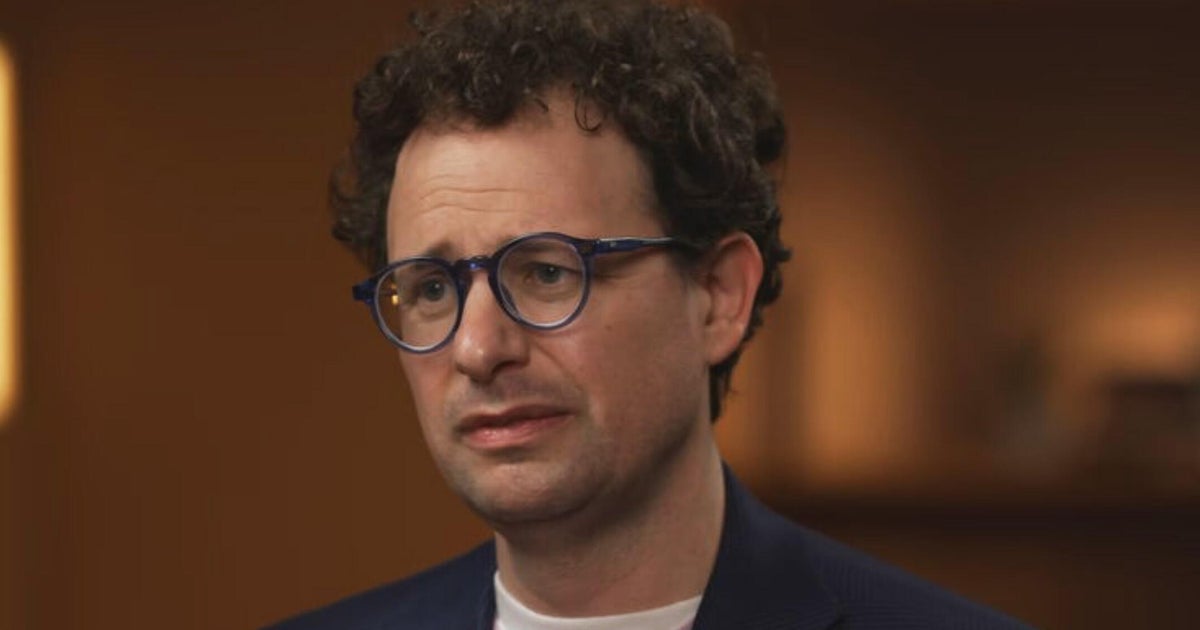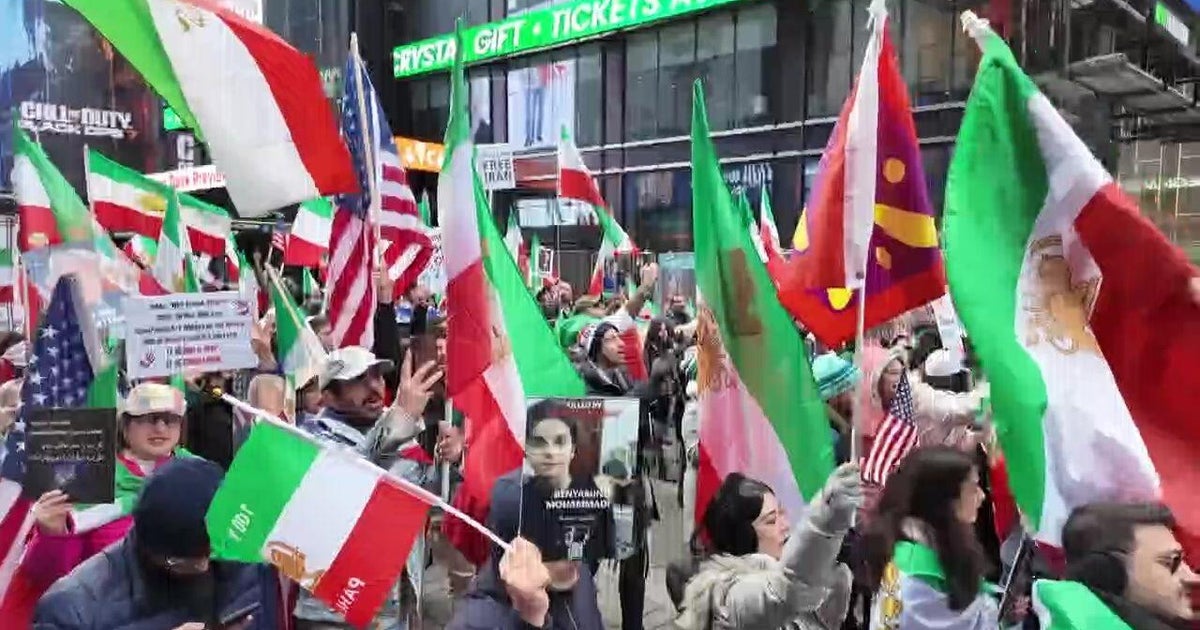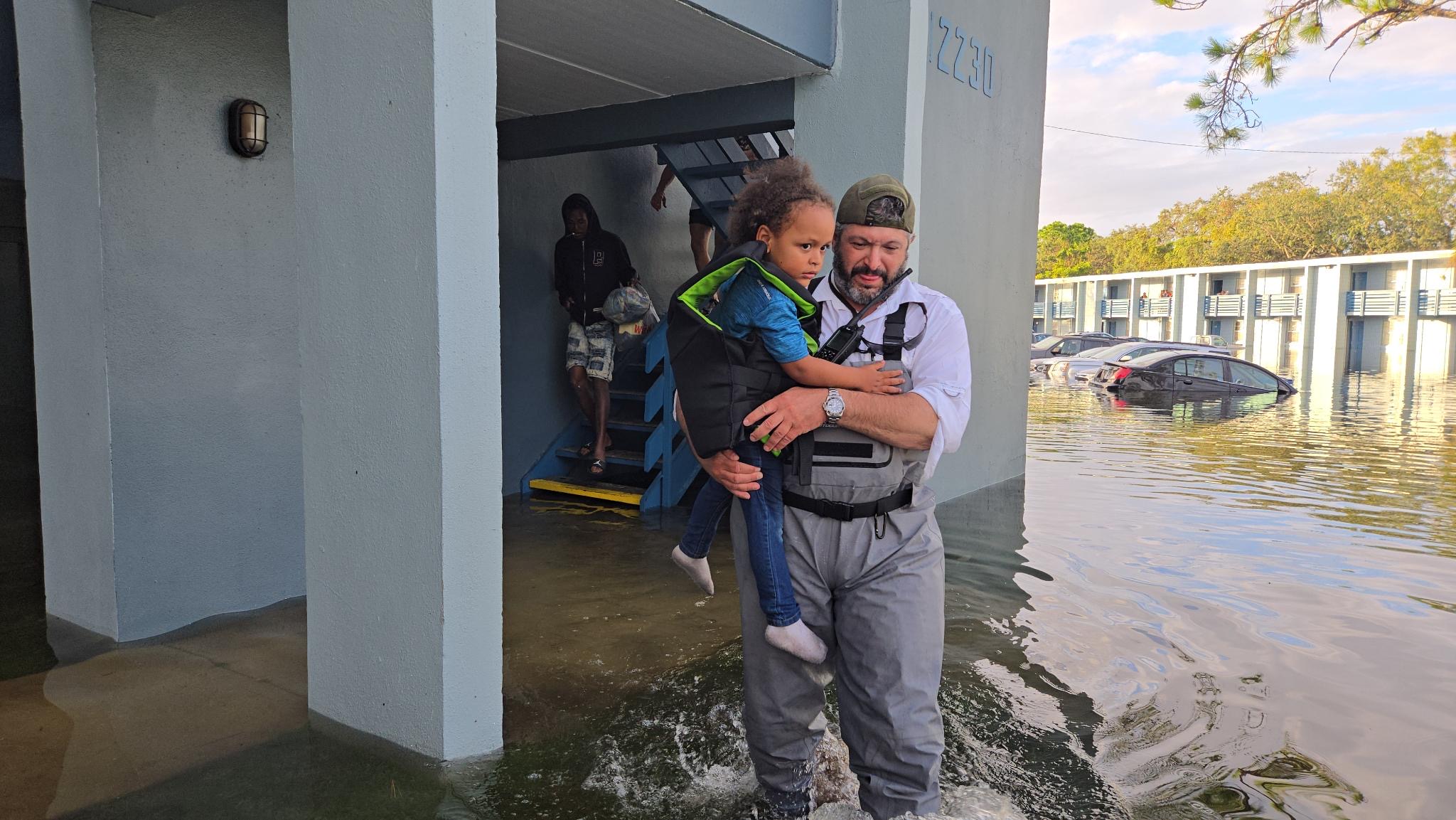Transcript: Amos Hochstein on "Face the Nation," July 17, 2022
The following is a transcript of an interview with Amos Hochstein, special presidential coordinator for international energy affairs, that aired Sunday, July 17, 2022, on "Face the Nation."
MARGARET BRENNAN: Welcome back to Face The Nation. As President Biden met with Middle Eastern leaders last week, he was accompanied by Amos Hochstein, the Special Presidential Coordinator for International Energy Affairs. He's with us now. Mr. Hochstein, Welcome to Face The Nation. Good to have you here in person.
PRESIDENTIAL COORDINATOR ON ENERGY SECURITY AMOS HOCHSTEIN: It's great to be in person. Thank you.
MARGARET BRENNAN: So you were one of the few US officials in the room when President Biden met with Saudi leaders. Why was this trip worth the political risk? What did you get?
HOCHSTEIN: Well, I think this was a historic trip. First, it started just landing in Saudi Arabia in Jeddah, as the first-ever flight from for a president to fly from Israel, directly to Saudi Arabia, with the backdrop of Saudi Arabia, opening the announcing that they're opening the skies for the first time for Israeli Aircraft, for all aircraft, including flights to and from Israel over its airspace, comes on the backdrop of a major achievement over the last few months of a ceasefire in Yemen, where 1000s of people have been killed. Over the last seven years, this has been the longest ceasefire we've had with a commitment from Saudi Arabia to work to extend the ceasefire even further; major announcements for food security and achieving contributions from the GCC from the Gulf countries on food security.
MARGARET BRENNAN: But none on oil, yet.
HOCHSTEIN: Well, we had a major announcement on cooperation on energy writ large. And if you recall, just before the President announced his trip just a few days before that OPEC+ made a- a major shift and its policies, recognizing that since Putin started amassing forces, the markets have been affected, and that there was a supply-demand issue and announced increases in supply over 50% for July and August. And I'm, based on what we heard, on the trip, I'm pretty confident that we'll see a few more steps in the coming weeks.
MARGARET BRENNAN: So OPEC+ meets August 3. Saudi has some, very little spare capacity. So are you saying you got a wink and a nod that they're going to pump more?
HOCHSTEIN: I think what we discussed, first of all, it's not just about Saudi, it's about we met with with the GCC and with Saudi Arabia. There is, I'm not going to go into how much spare capacity there is in Saudi Arabia and in UAE and Kuwait, etc. But there is additional spare capacity, there is room for increased production. As we've told producers in the United States, we've had conversations over the last several months and weeks, with OPEC. And I believe that there is still more room to-to see additional steps.
MARGARET BRENNAN: Saudi says it's got like a million spare barrel capacity.
HOCHSTEIN: Again, it's not just about Saudi, this is OPEC. So, there are other countries as well. So, we needed to see a little bit more. But let's-let's look at what has happened since the President announced his trip. Oil prices at that point were at about $120. Today, oil prices are around $100, $101. So that's a $20 decline based on the steps–
MARGARET BRENNAN: –some of that economic concerns, though China, looking like it's slowing and concerns here about consumption going down.
HOCHSTEIN: So there's no doubt there's never one reason why oil prices go up while goes down. As you know, in oil prices go up, they tend to say there's only one reason; that's the part of the political leadership. But if you think about it this way, over the last few months, the President has supplied the US market with a million barrels a day, which is a historic level from the strategic reserve. We've never done that before.
MARGARET BRENNAN: And that, what, ends in September?
HOCHSTEIN: No that-that will end towards the end of the year.
MARGARET BRENNAN: Will it end towards the end of the year? Can you afford to stop putting emergency supply on the market?
HOCHSTEIN: Well, look at what has happened. The private sector, as we talked to them, the United States said they can increase production in the United States by about a million barrels a day. But it's going to take time to invest in it, it will come at the end of the year. So we stepped in, the president stepped in and said 'I'll fill that gap.' So hopefully, my expectation is that the private sector in the US will have those increases coming, so we don't need to have the emergency from the US government. In the meantime, we've seen the prices, both the oil price, but also the price of the pump has come down at the fastest rate that we have seen in over a decade. So, from over $5. And remember this just a few weeks ago–
MARGARET BRENNAN: –still pretty high, but it's still pretty high. It may have come down a bit.
HOCHSTEIN It's not $5 anymore, it's now $4.55. And I expect it to come down more towards $4. And we already have many gas stations around the country that are below $4. So we're this is the fastest decline rate that we've seen against a major increase in oil prices during a war in Europe, where one of the parties in the war is the third largest producer in the world. So these are extraordinary circumstances we've taken very tough measures to address them right away, both for the American consumer but really for global economy, too.
MARGARET BRENNAN: Well, we'll watch to see if those gas prices continue to fall. I want to ask you about what the administration is pushing around the world which is this concept of putting a cap on the price of Russian oil that is sold, so that it's not cutting back on the amount but rather the windfall profits Putin can profit off of it. What's to stop Vladimir Putin from just saying, fine, I'm just going to stop pumping.
HOCHSTEIN: Well, I think that the wait, look the price cap is–
MARGARET BRENNAN: –Does that ruin your plan, if he does that?
HOCHSTEIN: Well, first, he could do that tomorrow, regardless of what we do on a price gap. You know, Putin has been an unreliable supplier, unfortunately. But I think what we're doing is we're designing the mechanisms so that he can still, he'd still would have revenues he needs those revenues to, that's the only revenues he really has in his country. There's nothing else in Russia except for oil and gas.
MARGARET BRENNAN: Well, JP Morgan says he's got enough cash that he's sitting on, that he could cut by 5 million barrels in that extreme example, that the price of oil would go up to over $300 a barrel, almost $400 dollars a barrel.
HOCHSTEIN: Well, what we want to be able to do is to mitigate where the price of oil on the world market doesn't actually impact Russia at all, because we're going to put a price cap, so that all they have is to get that price at no more than that.
MARGARET BRENNAN: Right.
HOCHSTEIN: We believe that that is the way to do it. So if prices go up, he still won't get that price and we can reduce that price.
MARGARET BRENNAN: Why would India or China comply?
Well, first, at the G7, a couple of weeks ago, the G7 endorsed this idea as a good idea. We're now starting to have the conversations with the major consumers. And I would ask the question the other way around, doesn't every buyer try to get a lower price? So, I think every buyer is incentivized to pay less. And I'll go a step further. Right now, regardless of what you see as the global oil price. That's not what Putin's getting. So these headlines about Putin getting some kind of a math between how much is he selling times the price of oil in the world, that's not his revenue, because he's already agreed to major discounts–
MARGARET BRENNAN: –He's still taking in money and he's still funding this war. So–
HOCHSTEIN: That's what we're trying to stop.
MARGARET BRENNAN: Right. But in the meantime, I want to ask you quickly about the president's climate change efforts, this bill, and his proposal is completely stalled right now. The president says he's going to take executive action, what is the plan? What are you going to actually do here in the United States?
HOCHSTEIN: Well, I think we've tried to get a plan where we can incentivize, great incentives for US investors–
MARGARET BRENNAN: –But you can't block new oil and gas drilling, right? You can't do some of those things, because they would counter your efforts.
HOCHSTEIN: Well, I think what we want to do in this in this bill that we've proposed, and we are hopeful that we still hope that that's what Congress does, is to give it the kind of incentive assurances that we can have additional American investment in climate, renewable energy electric vehicles. Why wouldn't we want to do that? Why would we want to make-to create an environment in which China is ahead of us? The rest of the world is making the investments and we're not. We want to be able to put the kind of incentives that will be additional investment in the infrastructure for renewable energy, for solar, for wind, and for electric vehicles and for our nuclear fleet in this country. That's how we get to climate. We didn't get that today. The President is determined to take some action that he can through executive orders, and through other actions. We'll see what we can do this weekend in the coming weeks. But again, I think that the responsibility here is to be able to invest into our future, whether we like it or not this those-some don't like it. This is the future of energy markets in the United States and around the world. We got to decide do we want the US to lead, or do we want the Chinese to lead this?
MARGARET BRENNAN: You got to convince Senator Joe Manchin, we'll be talking about that ahead in the segment, thank you very much for coming in. We'll be right back.



